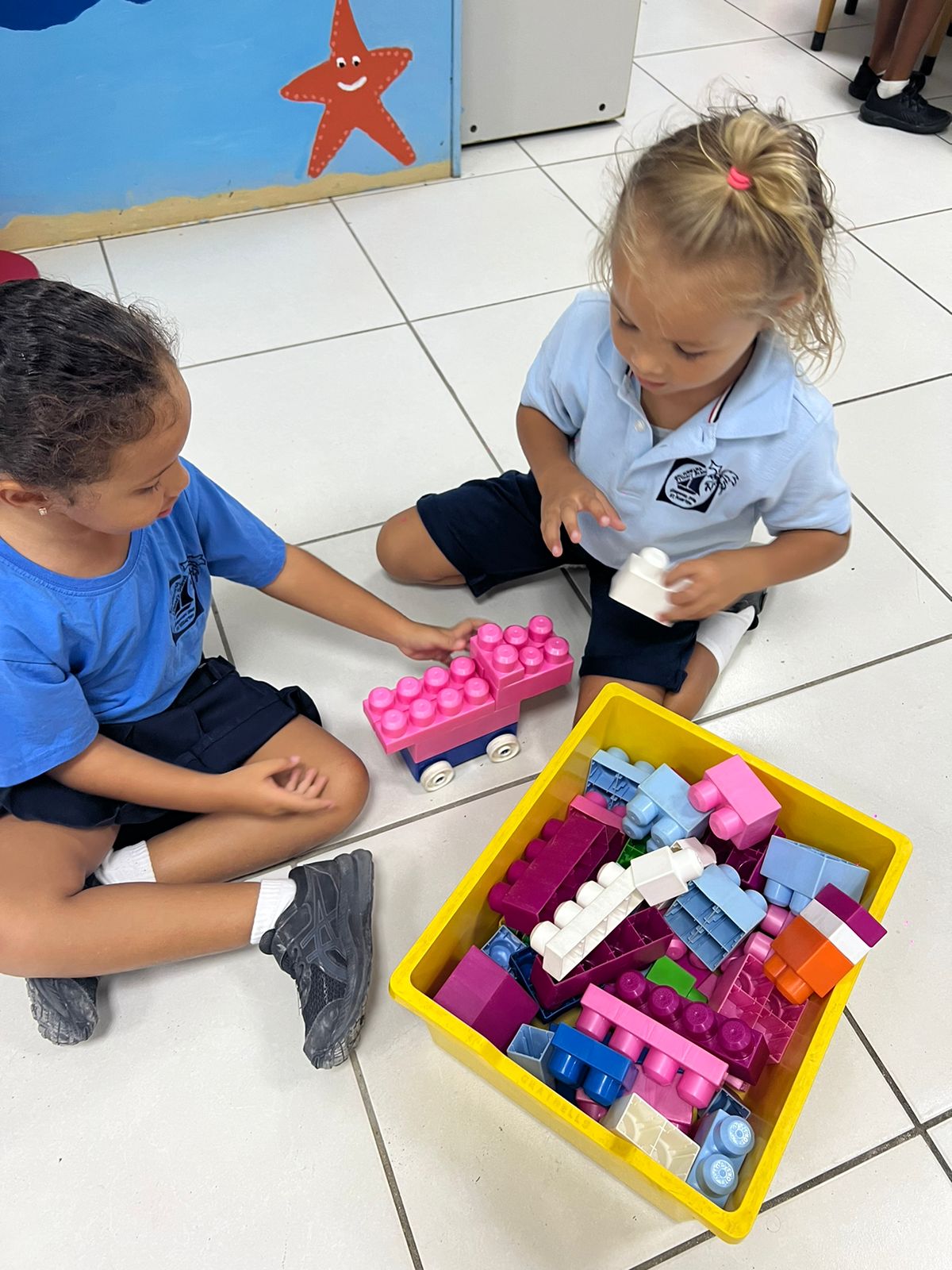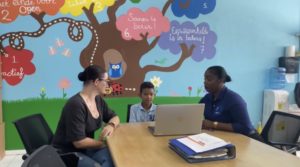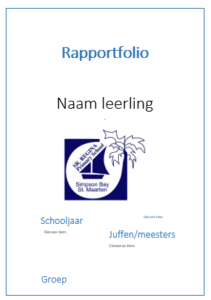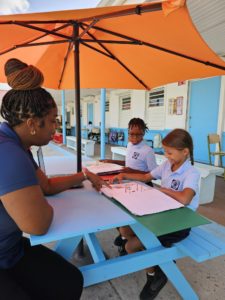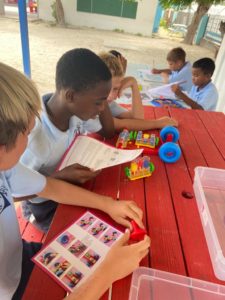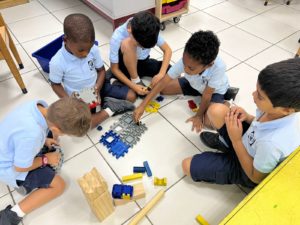By Ria Uiterloo and management Sr. Regina School
Recently I have seen a discussion on the current lack of comprehensive portfolios and progress reports that adequately describe the development and learning goals of children. The Education specialist and parliamentarian of the South American country mentioned her concern of the consequences such as low grades, dropout rates, and parental unawareness during the program. She highlighted the urgent significance of addressing these challenges to ensure the holistic development of every child. The country is currently experiencing a high rate of dropouts and increase of delinquency since students are constantly being stigmatized in the Education system.
The educator explained the need of getting rid of the problems associated with traditional report cards and how they fail to provide a holistic view of a student’s abilities and challenges.
In this article management of the Sr. Regina School and I will attempt to emphasize the negative impact on both students and parents, as well as the overall education system and suggest comprehensive reporting on student’s development. In earlier articles I suggest the need for Academic- and Social Emotional learning for a holistic development. In today’s dynamic educational landscape, the Foundation Catholic Education St. Maarten uses the combination of differentiation and social-emotional learning (SEL) which is essential for empowering students to take responsibility for their learning and personal growth. This development should be clearly described in a comprehensive report whereby student and parent are aware of what and how children learn and what should be the next step for development.
Let’s first look at the limitations of Traditional Report Cards.
Traditional report cards have been a staple of the education system for decades, serving as a tool to convey a student’s academic performance through letter grades and numerical scores. However, as the landscape of education evolves and our understanding of holistic development deepens, it’s becoming increasingly evident that these conventional report cards fall short in providing a comprehensive view of a student’s abilities, challenges, and potential. This inadequacy has far-reaching consequences that extend beyond individual students to impact both parents and the education system as a whole.
Traditional report cards predominantly focus on assigning letter grades or percentages to subjects like mathematics, science, language arts and even gymnastics and artistic development. This narrow focus on grades fails to capture the diverse range of talents and skills that students possess. It ignores their artistic abilities, social skills, critical thinking, and problem-solving capabilities, 21st century skills which are equally vital for their overall growth.
We cannot ignore a student’s learning style. Every student has a unique learning style and pace. Some may excel in hands-on activities, while others thrive in more theoretical or visual learning environments. Traditional report cards lack the flexibility to account for these differences, leading to a skewed understanding of a student’s progress and potential.
Personal and emotional development is a crucial aspect of a child’s education. However, traditional report cards rarely address a student’s emotional intelligence, interpersonal skills, or self-confidence. These aspects play a significant role in shaping a student’s overall success and well-being.
For parents, report cards often become the sole source of information about their child’s education. Relying solely on grades can create a skewed perception of a child’s abilities and challenges. Parents might not fully grasp their child’s learning style, their interests, or the areas where they need additional support. The numerical report card forces lots of parents to pursue assistance from Afterschool programs where children continue academic tutoring and practice after spending hours in school.
Focusing solely on grades can inadvertently undermine a student’s intrinsic motivation to learn. When the emphasis is placed solely on achieving high scores, students may resort to rote memorization and short-term learning strategies rather than engaging in deep, meaningful learning experiences.
The Traditional report cards hinder effective collaboration between teachers and parents. The information provided is often limited to grades and lacks the context required for teachers and parents to work together to support a child’s holistic development.
Life skills such as critical thinking, problem-solving, effective communication, and adaptability are increasingly important in the modern world. Traditional report cards do not assess or address these skills, leaving students ill-equipped for the challenges they will face beyond the classroom.
During the discussion of the program with the educational specialist (on my television screen) that voiced her concern, she made clear how Inequality is reinforced. The Traditional report cards can perpetuate inequality by emphasizing standardized testing and neglecting other valuable skills that students from different backgrounds might possess. This can result in some students feeling undervalued or discouraged.
In essence, the limitations of traditional report cards have a cascading effect on students, parents, and the education system at large. They fail to provide a holistic understanding of a student’s abilities, hinder collaboration, undermine intrinsic motivation, and inadequately prepare students for the complexities of the modern world. To address these issues, a paradigm shift is needed—one that embraces comprehensive portfolios and progress reports that offer a broader perspective on a child’s growth, potential, and challenges. This shift has the potential to transform education into a more inclusive and effective experience for all stakeholders involved.
The Power of Comprehensive Portfolios and Progress Reports
In response to the limitations of traditional report cards, the concept of comprehensive portfolios and progress reports emerges as a transformative solution that holds the potential to revolutionize the way we assess and communicate a student’s learning journey. These tools offer a more holistic and accurate representation of a child’s development, encompassing not only academic achievements but also personal growth, strengths, challenges, and learning styles.
Comprehensive portfolios go beyond a mere collection of grades and scores. They serve as a dynamic compilation of a student’s work, showcasing their diverse talents, achievements, and efforts across various subjects and activities. From essays to artwork, from science projects to community service, these portfolios provide a panoramic view of a student’s skills and interests.
Each student embarks on a unique educational journey with individual strengths and challenges. Comprehensive portfolios and progress reports reflect this uniqueness by offering insights into a student’s learning style, preferences, and areas of passion. This personalized approach fosters a deeper understanding of how a student learns best and where they may need additional support.
In a portfolio the personal growth of a child is celebrated. Traditional report cards often overlook a student’s personal growth and character development. Comprehensive portfolios capture a student’s growth in areas such as teamwork, leadership, communication, and resilience. These intangible qualities are invaluable for success in both academic and real-world scenarios.
The diverse skills of a child are captured. Students possess a wide array of skills beyond what is assessed through traditional grading. Comprehensive portfolios allow students to showcase their prowess in fields like music, sports, coding, debate, and more. This inclusivity recognizes the multifaceted nature of intelligence and talent.
One of the effective processes of the Portfolio is that it encourages reflection and goal setting: By maintaining a portfolio, students engage in reflection and self-assessment. They can observe their progress over time, identify areas of improvement, and set meaningful goals. This self-directed approach to learning promotes ownership and a growth mindset.
Teacher-Parent collaboration is also enhanced. Comprehensive portfolios and progress reports facilitate more informed conversations between teachers and parents. Instead of relying solely on grades, teachers can discuss a child’s strengths, interests, and potential areas for development. This collaborative effort ensures that parents are well-equipped to support their child’s learning journey effectively.
Employability and success in the modern world require skills that extend beyond academic prowess. Comprehensive portfolios help students build a well-rounded set of skills, including critical thinking, creativity, adaptability, and problem-solving. This preparation equips them to face the challenges of the future confidently.
Through the approach of detailed reporting Inclusivity and Equity is enforced: Comprehensive portfolios embrace a more diverse set of skills and strengths, leveling the playing field for students with different learning abilities and backgrounds. This inclusivity promotes a culture of equity by recognizing and valuing each student’s unique contributions.
In essence, comprehensive portfolios and progress reports have the power to redefine the way we evaluate and communicate a student’s educational journey. By encompassing a wide range of accomplishments, personal growth, and skills, these tools provide a more accurate and well-rounded representation of a student’s potential. They align with the evolving educational landscape and prepare students not only for academic success but also for their roles as well-rounded, capable individuals in an increasingly complex world.
Below the experiences, pictures of educators and students on portfolios and progress report cards from the Sr. Regina School. Please click on the video link of the Teacher Lonneke on the website page from the Sr. Regina School website.
Student S, describes the following:
It’s good to set your goals and try to achieve them. Sometimes I forget, but then the teacher reminds me of my goals. She then says, for example, “How’s your handwriting?” I am always updating my portfolio on my laptop. Another goal I’m working on is improving my concentration. My parents also see what they can help me with. I like the report folio better than the grade report because it allows me to work on my own personal goals. With the grade report, it’s just grades.
Student E:
I like working in my portfolio online. My parents and the teacher also help me.
My goal is to make friends, do my best in school and ask questions to the teacher.
Teacher:
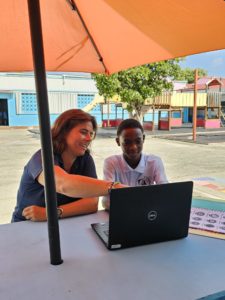
Since we started working with the portfolio, I see more engagement from the students.
The children now take more ownership of their own goals and learn to reflect.
They now look more at their personal growth process, instead of the teacher determining it for them.
Together with the child and parent, we formulate goals that we will work on for a certain period of time.
As a teacher, it is important that I offer guidance to the child by giving feedback and feedforward. It is important, that I monitor this process closely with the students.
Sister Regina Portfolio School concludes:
Our mission is, to create a place where students can learn through inquiry, explore, be autonomous and create wonderful things based on real world problem solving. We aim to guide our students to become critical thinkers and take ownership of their learning process.
During this process students will learn to set goals in their personal portfolio’s. Parents are also involved, when we look at the child’s development. We think it’s important that we not focus only on grading, but the holistic wellbeing of the child. The process tells us more, than the end product. We would like to achieve, that children develop their transversal skills and become well rounded children.
Collaboration amongst students as well as amongst teacher, plays a very important role in our school. When students or teachers collaborate, they make use of each other’s competencies and build a strong learning community.
The school’s commitment to a growth mindset is reflected everywhere in the school!


